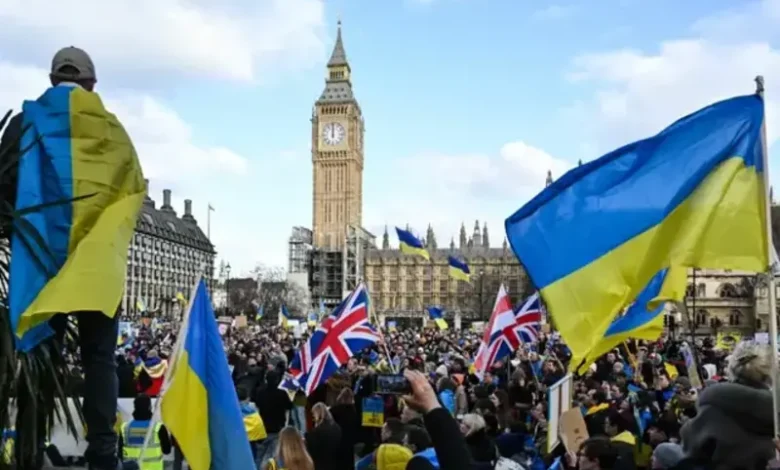Great Britain is increasingly denying asylum to Ukrainian refugees: causes and consequences

Against the background of the protracted war and the long-term presence of Ukrainians in European countries, Great Britain is gradually adjusting its migration policy. Despite the fact that after the start of the full-scale invasion, London opened humanitarian programs for citizens of Ukraine, in 2025 the vector is gradually shifting. The signal for this was the update of the internal instructions of the Ministry of Internal Affairs, which changed the approach to considering applications for refugee status. It is about refusing to recognize the threat to those who have arrived from territories affected by hostilities.
The essence of the new position of the Ministry of Internal Affairs of Great Britain
Reportedly The Guardian, the British Home Office began refusing asylum to some Ukrainian citizens who arrived in the country after the start of the full-scale Russian invasion, arguing that they could return to safer regions of Ukraine.
In January 2025, the Home Office updated the guidance that officials rely on when considering applications for refugee status. This document clearly states that a number of regions of Ukraine — in particular, Kyiv, Lviv, Ivano-Frankivsk, Chernivtsi, Transcarpathia — are considered stable enough for a person who is at risk in another part of the country to move there safely. On this basis, applicants from front-line or destroyed regions are refused, since, according to the department’s logic, they are not at risk of persecution — because they can return to another part of Ukraine.
The wording of the refusal letters is typical, they state that war-related threats do not fall under the definition of persecution under the provisions of the Geneva Convention, since applicants can move to safer regions of Ukraine — in particular to Kyiv or the western regions, which after the January update of the instructions of the Ministry of Internal Affairs are recognized as generally not a threat. Refusals also often indicate the possibility of applying for help to state institutions, local organizations, or the UNHCR representative office.
Although a temporary visa gives the right to stay in the UK for 18 months, the lack of guarantees of housing and status creates a sense of uncertainty for refugees, especially for vulnerable groups. Lawyer Halyna Semchak criticized the new practice, pointing out that such refusals ignore the real state of affairs on the ground and do not take into account individual circumstances, violating Articles 3 and 8 of the European Convention on Human Rights, which guarantee protection from ill-treatment and the right to private and family life.
In turn, representatives of the Ministry of Internal Affairs stated that after the beginning of the invasion of the Russian Federation, they provided temporary protection to more than 300,000 Ukrainians, and each application is allegedly considered individually. At the same time, the agency emphasized that no person will be returned to Ukraine if he or she is at risk of real harm.
Consequences for applicants
A person who has not received refugee status loses his protected legal status. She has no long-term prospects for legal residence, cannot issue a permanent residence permit, is limited in her rights to employment, renting housing, and receiving social assistance. All of this is accompanied by long-term psychological stress — especially in cases involving families with children, women who have lost their homes, and people with post-traumatic stress disorders.
A typical situation: a Ukrainian family that has lived in Britain for more than two years, has sent a child to school, has friends, a community, has partially integrated, is refused asylum. As a result, she loses not only her legal status, but also her confidence in the future. People find themselves in limbo: temporary protection programs do not provide long-term guarantees, and for many, returning to Ukraine is either objectively dangerous or psychologically unacceptable.
Legal assessments and criticism
Lawyers who accompany Ukrainians in Britain express serious concern. The new approach ignores not only the humanitarian reality, but also the country’s legal obligations under the European Convention on Human Rights. Home Office decisions contravene Article 3 (protection from torture, inhuman or degrading treatment) and Article 8 (right to respect for private and family life), as in individual cases a real threat may exist outside the area of active hostilities.
Lawyers also note that the new wording contradicts the basic principles of international humanitarian law: consideration of an application cannot be based solely on geography. There are other criteria: availability of real access to housing, work, medical services, social support, as well as risks associated with mobilization, persecution, losses.
Appealing decisions and chances of review
The right of appeal in the UK immigration system remains. But to effectively challenge the refusal, you need high-quality legal training. The success of the case depends on the availability of evidence – medical certificates, documents on loss of housing, confirmation of shelling, photo and video materials, evidence of psychological trauma, documents on integration into society.
At the same time, the wording in the refusal letters complicates the appeal: when the applicant is not denied status “due to the absence of a threat”, but due to the presence of an “alternative safe zone”, the appeal requires proving the impossibility of returning not to Ukraine in general, but specifically to any region.
This increases the legal burden on the applicant, increases the cost of the process and makes it more difficult for the most vulnerable to access protection.
The situation in 2025 lacks clear definitions and clear criteria. People who fled the war, lost their homes, partially integrated into the new society, today are forced to fight not only with the bureaucracy, but also with the cold logic of political instructions that supplant reality. Refusal to recognize refugee status is not a technical decision, but a change in a person’s status in society, with all the consequences: legal, psychological, and moral.





